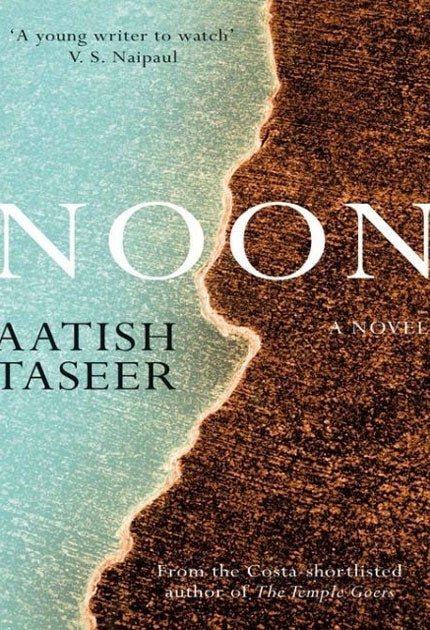Noon, By Aatish Taseer
A new India sees the light of day

Your support helps us to tell the story
From reproductive rights to climate change to Big Tech, The Independent is on the ground when the story is developing. Whether it's investigating the financials of Elon Musk's pro-Trump PAC or producing our latest documentary, 'The A Word', which shines a light on the American women fighting for reproductive rights, we know how important it is to parse out the facts from the messaging.
At such a critical moment in US history, we need reporters on the ground. Your donation allows us to keep sending journalists to speak to both sides of the story.
The Independent is trusted by Americans across the entire political spectrum. And unlike many other quality news outlets, we choose not to lock Americans out of our reporting and analysis with paywalls. We believe quality journalism should be available to everyone, paid for by those who can afford it.
Your support makes all the difference.A"noontime menace" pervades this atmospheric novel. Taking its title from the hottest, brightest part of the day, it also focuses on the ominous shadows cast by the sunlight. If the partition of India is associated with midnight (as in Salman Rushdie's Midnight's Children), Aatish Taseer's temporal territory is the opposite time: his characters are dealing with partition's reverberations over the decades.
Absent presences haunt the narrative, endowing it with great emotional force. Here, it is an absent father, as in Taseer's previous works, the non-fiction Stranger to History and his first novel, The Temple-Goers. The protagonist, Rehan, is on a train journey in search of his businessman father when a stranger bursts into his compartment and begins relating the day that his own father died, during a 2005 earthquake which demolished the Jhelum Valley.
The novel begins with this story within a story: a vivid and shocking description of the earth's destruction. Taseer's finest writing deals with loss, masterfully depicting in pared-down poetic prose the pain of losing both places and people.
Storytelling is crucial throughout as Taseer ambitiously tackles the narrative of nations, charting the violent struggle between tradition and modernity. Steeple Hall, the Delhi abode of Rehan's mother and stepfather, resembles "a cross between a mosque and an IT centre": a monument to "the cultural confusions that had taken root in India" in the early 21st-century.
What happens when "the most basic morality starts to erode"? Following a robbery at Steeple Hall, Rehan becomes unwittingly complicit in violence. "Casual brutalities" fill the novel as Taseer traces the fissures within the human conscience. The violence of utopias is a key theme; he depicts the rage incited by a failed utopia and the gulf between ideal and reality.
As the political and personal undergo seismic shifts, Taseer grapples with new ways of telling stories. It is not the rules of linear storytelling that the narrative obeys; this is a novel instead powerfully patterned by evocative images that become increasingly poignant as they recur. The yearning to escape from a stifling political situation is symbolised in beautiful imagery of the "briny breath of the sea". In both form and content, Taseer movingly evokes the heartbreak of a nation, conveying with great acuity what happens when the ground beneath our feet is shaken to its core.
Join our commenting forum
Join thought-provoking conversations, follow other Independent readers and see their replies
Comments